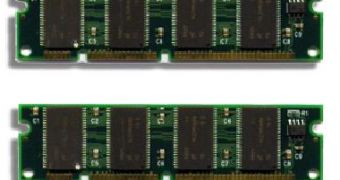It seems that the Taiwanese government has some plans to merge the DRAM memory chip makers in the country into a single company, which will be called Taiwan Memory Company (TMC). The merger is expected to happen in the following months, as an effort to consolidate the falling DRAM industry in the country.
Taiwan Ministry of Economic Affairs (MOEA) is the one that announced the plan yesterday. The new Taiwan Memory Company (TMC) is expected to be established in the following six months, while being run by John Hsuan, a vice chairman and former CEO of the contract chip giant United Microelectronics. The Taiwanese government also announced that it would account for less than 50 percent of the company shares.
According to the news, TMC is likely to have as technology partners the Japanese-based Elpida Memory as well as the U.S.-based Micron Technology. The MOEA stated that the decision regarding the partners should be made during the following three months. As many of you might already know, both Micron Technology and Elpida Memory have been affected by the global economic downturn.
In addition, it seems that TMC will also conduct negotiations with Taiwan's six existing DRAM manufacturers (Nanya Technology, Inotera Memories, Powerchip Semiconductor, Rexchip Electronics, ProMOS Technologies, and Winbond Electronics), which would lead to further consolidation via more mergers and even acquisitions, but that would happen after the new company would acquire DRAM-related intellectual properties and technologies from one of the aforementioned possible foreign partners.
Taiwan's dynamic random access memory (DRAM) industry has been on a downward road during the last several months. The entire DRAM market has been falling lately, yet it seems that Taiwan DRAM makers suffered more in comparison with market leaders such as Samsung and Micron. The government's move is expected to provide Taiwanese DRAM makers with access to intellectual properties related to DRAM, which would leverage their competitiveness on the market.

 14 DAY TRIAL //
14 DAY TRIAL //